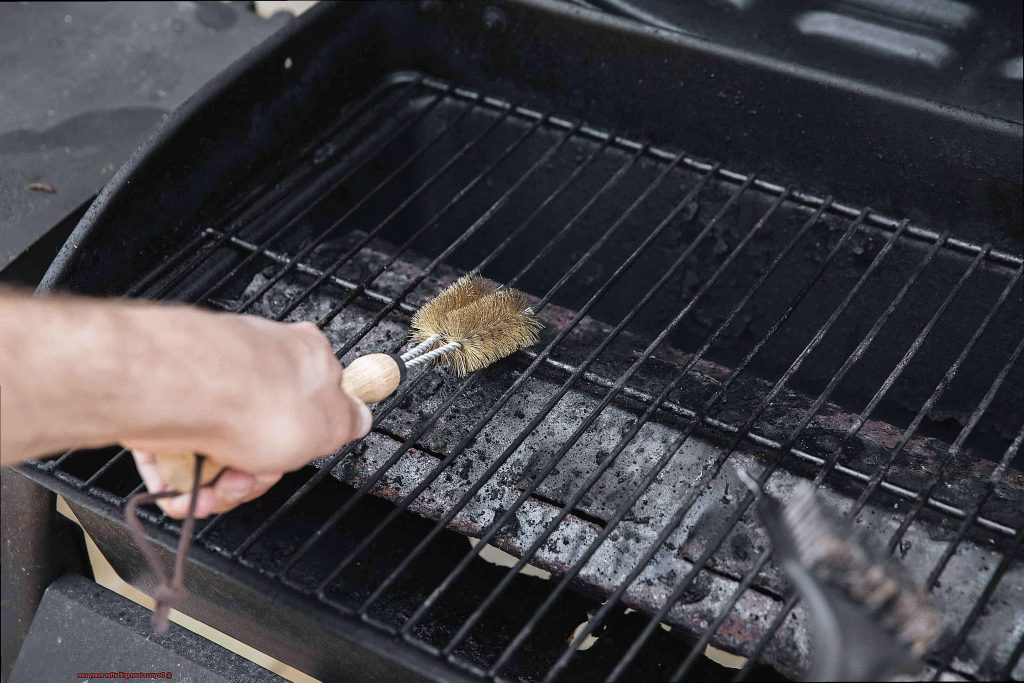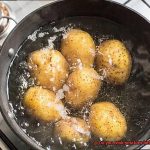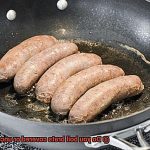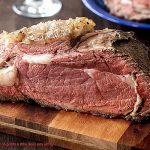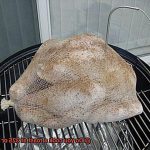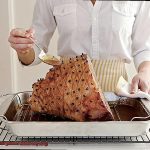Summer is just around the corner, and that means it’s time to dust off your grill and start cooking up some mouth-watering barbeque. Grilling is a beloved pastime that brings people together for some outdoor fun and delicious food. But, before you start flipping burgers and hot dogs, there’s an important question you need to ask yourself – do you clean your grill after every use?
There are differing opinions on this topic, with some saying that regular cleaning isn’t necessary. However, leaving your grill greasy and oily after each use can lead to serious consequences. The build-up of grease and food particles from previous grilling sessions can cause flare-ups, foul smells, and even dangerous bacteria growth.
So, the answer is a resounding yes – cleaning your grill after every use is crucial for maintaining its longevity and ensuring it remains safe for cooking. But don’t worry; we’re here to make the cleaning process hassle-free.
In this blog post, we’ll delve into the importance of cleaning your grill after every use and provide you with some useful tips to get it done quickly and easily. So grab a cold drink, sit back, and let’s get started on keeping your grill in tip-top shape.
Contents
Reasons to Clean Your Grill After Every Use
Grilling is one of the most popular outdoor activities, especially during summer. It’s a great way to cook delicious meals while enjoying fresh air and sunshine. However, it’s not just about the fun and food – it’s also important to clean your grill after every use. Here are five reasons why:
Hygiene
Cooking on a dirty grill can be a recipe for disaster. Grease and food particles left on the grates can attract harmful bacteria that thrive in warm, moist environments. If you don’t clean your grill after every use, these bacteria can contaminate your food and cause foodborne illnesses. By cleaning your grill, you’ll eliminate this risk and ensure that your food is safe to eat.
Taste
A dirty grill can leave an unpleasant taste on your food. The leftover grease and food particles can cause smoke and flare-ups, which can affect the flavor of your food. By cleaning your grill after every use, you’ll remove any residue that could impact the taste of your next meal.
Longevity
Regular cleaning can help extend the lifespan of your grill. Grease and food particles left on the grates and in the drip pan can cause corrosion and rust, which can damage your grill over time. By cleaning your grill after every use, you’ll keep it in good condition and avoid costly repairs or replacements.
Safety
Grease buildup on the grates and in the drip pan can ignite when exposed to high heat, causing dangerous flare-ups. By removing the grease buildup after each use, you reduce the risk of fires and ensure that your grill remains safe to use.
Convenience
Cleaning your grill after every use makes it easier to use next time. You won’t have to worry about leftover debris or grease causing smoke or flare-ups, which can make grilling frustrating and difficult. Plus, a clean grill is more visually appealing and inviting to use.
In conclusion, cleaning your grill after every use is crucial for maintaining hygiene, improving taste, extending the lifespan of your grill, ensuring safety, and making grilling more convenient. It may seem like a tedious task, but it’s well worth the effort in the long run.
How to Clean Your Grill Properly
Here are some easy steps to follow for proper grill cleaning:
Step 1: Brush off any leftover debris
Before you start cleaning your grill, brush off any leftover debris from previous uses using a wire brush or scraper. This will make sure that the grill grates are completely clean and free of any leftover food particles.
Step 2: Wash the grates with soap and water
Next, wash the grates thoroughly with soap and water to remove any grease or buildup that may have accumulated during cooking. This step is essential to ensure that your food tastes fresh and delicious every time you grill.
Step 3: Clean the inside of the grill
Cleaning the inside of the grill is just as important as cleaning the grates. Remove any excess ash or debris from the bottom of the grill, and wipe down the inside with a damp cloth or sponge. This will prevent any potential health hazards from leftover food debris.
Step 4: Use a specialized grill cleaner
For particularly tough stains or buildup, consider using a specialized grill cleaner or degreaser. These products are specifically designed to get rid of stubborn stains and keep your grill looking new for years to come.
Step 5: Clean additional components
Don’t forget to clean any additional components of your grill, such as the drip tray or heat deflectors. These areas can collect grease and other debris during cooking, which can lead to a buildup of bacteria over time if not properly cleaned.
Tips for Keeping Your Grill Clean
To ensure that your food is not only delicious but also safe to eat, it’s important to keep your grill clean after every use. Here are five sub-sections with tips for keeping your grill clean:
Preheat the Grill:
Before you start cooking, preheat your grill on high heat for 10-15 minutes. This will burn off any leftover residue from the previous use and make it easier to clean later. Plus, preheating ensures that your grill is at the right temperature for cooking.
Brush the Grates:
After preheating, use a wire brush to scrape off any food particles or debris from the grates. This will prevent any leftover food from sticking to the grates during your next cookout. Brushing also helps prevent flare-ups and ensures that your food cooks evenly.
Clean the Exterior:
The exterior of your grill can accumulate grease or dirt during cooking, making it a breeding ground for bacteria. Use a damp cloth to wipe down the exterior of the grill, including the lid, handle, and side shelves. This will not only keep your grill looking shiny and new but also help prevent any potential health hazards.
Empty the Grease Tray:
Most grills have a grease tray or pan that collects excess grease during cooking. Be sure to empty this tray after each use to prevent any buildup and potential fire hazards. Grease buildup can cause flare-ups and damage to your grill’s burners, leading to costly repairs.
Clean the Burners:
Over time, burners can become clogged with debris, affecting their performance and potentially causing gas leaks or uneven heating. Use a wire brush to clean the burners and ensure they are free of any obstructions. Regular cleaning of the burners will not only extend their lifespan but also improve the quality of your grilling.
Bonus Tip: Use a Cover
When not in use, cover your grill with a weatherproof cover to protect it from the elements and prevent rusting. This will also keep your grill looking new and shiny for years to come.
The Benefits of Regularly Cleaning Your Grill
As a grill master, you know the importance of keeping your grill clean and well-maintained. It’s not just about hygiene, but also about ensuring that your grill lasts longer and performs at its best every time you use it. Let’s dive into the benefits of regularly cleaning your grill.
Firstly, cleaning your grill after every use is crucial for preventing the buildup of grease and grime on the grates and other parts of the grill. This buildup not only affects the flavor of your food but can also harbor bacteria that are harmful to your health. Additionally, the grease buildup can cause flare-ups and fires when you start cooking, which can be dangerous and ruin your food. So, grab your brush and get scrubbing.
Secondly, regular cleaning helps maintain the performance of your grill. Over time, grease and debris can clog up the burners and affect their ability to heat evenly. This can lead to hot spots and cold spots on the grates, making it difficult to cook food evenly. By regularly cleaning your grill, you can prevent this from happening and ensure that your grill heats up evenly every time you use it.
Lastly, regular cleaning can extend the lifespan of your grill. Grease and debris can corrode metal parts of the grill over time, leading to rust and deterioration. By keeping your grill clean, you can prevent this from happening and ensure that your grill lasts for many years.
In summary, regularly cleaning your grill is essential for maintaining its performance and ensuring that it lasts for many years. It may seem like a hassle to clean your grill after every use, but it is well worth the effort in terms of safety, flavor, and longevity. Here’s a quick list of benefits that will motivate you to break out that brush:
- Prevents unhealthy bacteria buildup
- Reduces flare-ups and fires
- Ensures even heating for perfectly cooked meals
- Extends the lifespan of your grill
Common Mistakes When Cleaning a Grill
As a grill master, you take pride in your ability to cook up mouthwatering meals on your trusty grill. However, it’s important to remember that cleaning your grill after every use is just as crucial for maintaining its longevity and ensuring that your food remains healthy and safe to eat. Unfortunately, there are some common mistakes that people make when cleaning their grills that can actually do more harm than good. Fear not, we’ve got you covered with some expert tips and tricks on how to avoid these pitfalls.
Mistake #1: Not Preheating the Grill
Skipping the preheating step before cleaning your grill can lead to increased scrubbing time, damage to the grill’s surface, or even injury from flying debris. To avoid this, preheat your grill for 10-15 minutes on high heat to help loosen any stuck-on debris, making it easier to clean. This also helps to sanitize and sterilize the grates before your next use.
Mistake #2: Using Abrasive Materials
Using wire brushes or steel wool to clean your grill grates may seem effective, but it can actually scratch the surface of your grill and leave behind dangerous metal bristles in your food. Instead, opt for a non-abrasive scrubber or grill brush made from nylon or brass bristles. These are just as effective at removing grease and debris while being gentle on your grill’s surface.
Mistake #3: Neglecting the Underside of the Grates
It’s easy to forget about the underside of your grill grates, but neglecting them can lead to a build-up of grease and debris that affects both the flavor of your food and poses a fire hazard. To clean the underside of the grates, simply remove them from the grill and use a scraper or brush to remove any buildup. You’ll be surprised at how much cleaner your grill will look and smell after this simple step.
Mistake #4: Using Harsh Chemicals or Cleaners
Using harsh chemicals or cleaners on your grill can damage its surface and contaminate your food. Instead, opt for natural cleaners such as baking soda and vinegar or specialized grill cleaners that are safe for use on food-contact surfaces. These will effectively remove grease and grime without compromising the quality of your grill or food.
Different Types of Grills and How to Maintain Them
Grilling is a beloved pastime, but with so many different types of grills available, it can be overwhelming to know which one to choose. Each type has its own unique features and maintenance requirements. In this article, we will explore the different types of grills and how to maintain them, so you can make an informed decision and enjoy your grill for years to come.
Gas Grills:
Gas grills are a popular choice due to their convenience and ease of use. To maintain a gas grill, it’s important to clean the grates after each use and periodically check the burners for clogs or damage. After turning off the gas supply and letting it cool down completely, remove the grates and use a grill brush to clean them thoroughly. Wipe down the inside of the grill, including the burners and heat deflectors, with a damp cloth or sponge.
Charcoal Grills:
Charcoal grills are loved by many for their smoky flavor but require more effort to use than gas grills. To maintain a charcoal grill, it’s important to remove ash after each use and clean the grates with a wire brush. After removing the ash from the bottom of the grill, use a grill brush to clean the grates thoroughly. You can also use a damp cloth or sponge to wipe down the inside of the grill.
Electric Grills:
Electric grills are ideal for those who live in apartments or other areas where open flames are prohibited. They’re also great for those who want to grill indoors. To maintain an electric grill, it’s important to clean the grates after each use and wipe down the exterior with a damp cloth. After turning off the power and letting it cool down completely, remove the grates and use a grill brush to clean them thoroughly. Then, wipe down the inside of the grill with a damp cloth or sponge.
Pellet Grills:
Pellet grills use wood pellets as their fuel source and are known for their ability to smoke, roast, and grill food all in one unit. To maintain a pellet grill, it’s important to keep the hopper filled with pellets and clean the grates after each use. After removing any leftover pellets from the hopper, use a grill brush to clean the grates thoroughly. Then, wipe down the inside of the grill with a damp cloth or sponge.
Best Practices for Safe Grilling
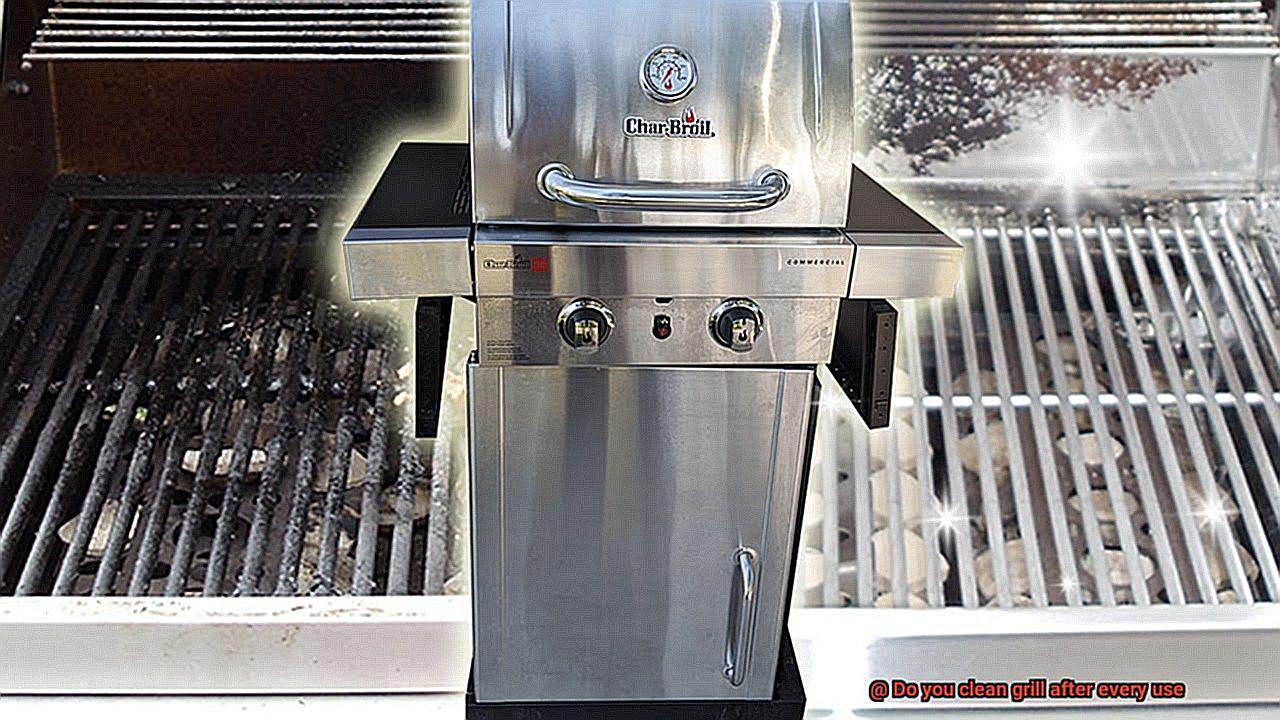
Regardless of your grilling experience, it’s essential to prioritize safety when it comes to firing up that grill. In this guide, we’ll explore the best practices for safe grilling and provide tips to ensure your grilling experience is not only enjoyable but also healthy and hazard-free.
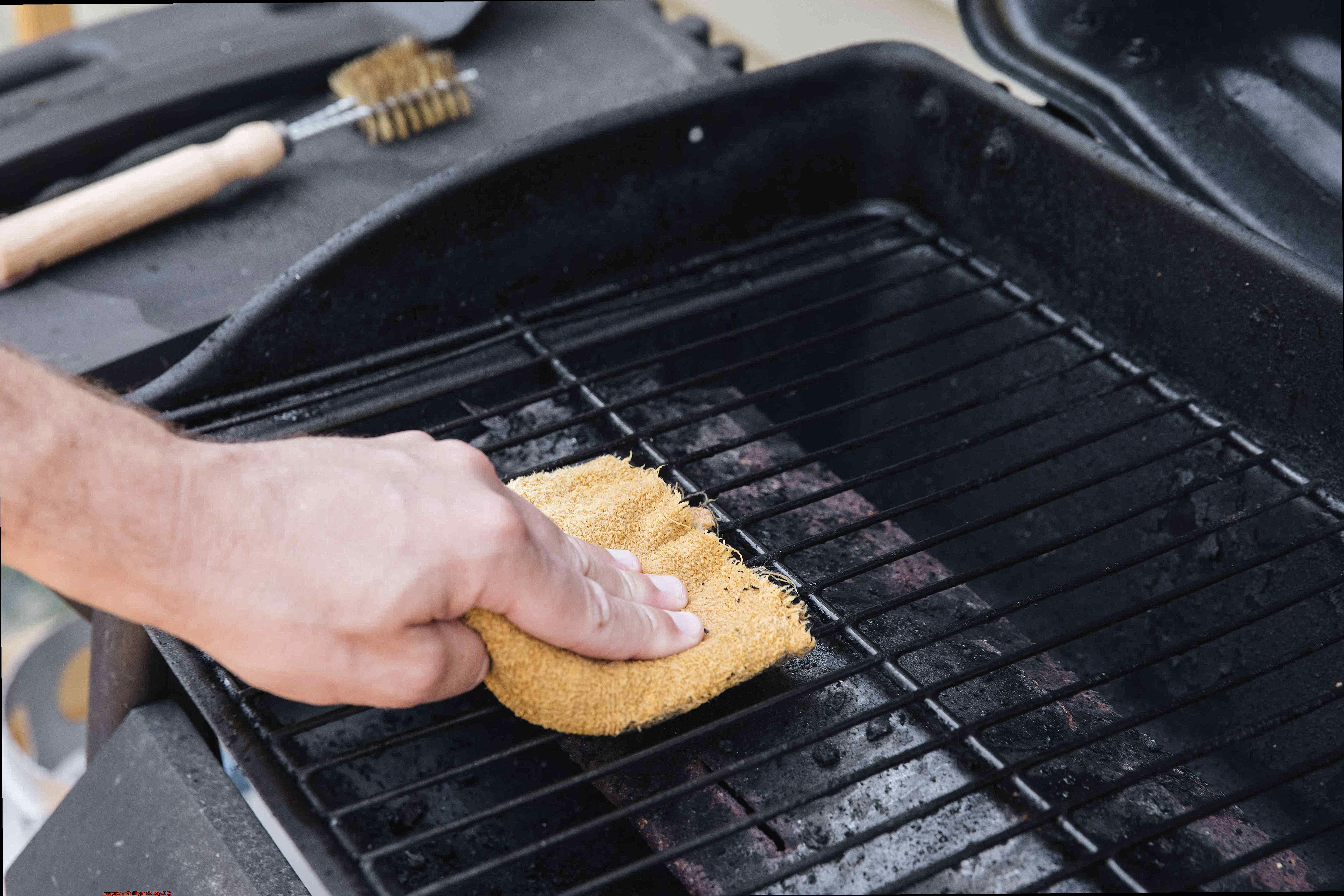
First and foremost, cleaning your grill after every use is crucial. Leftover food particles and grease can accumulate on the grates and inside the grill, creating a potential fire hazard. Additionally, these particles can attract pests that can be harmful to your health. To effectively clean your grill after each use, preheat the grill for 10-15 minutes to loosen any leftover food particles and grease. Then use a grill brush appropriate for your type of grill to scrub the grates thoroughly. After cleaning the grates, remove any ash or debris from the bottom of the grill using a scoop or ash pan. Lastly, wipe down the exterior of the grill with warm soapy water and rinse with clean water. Follow these simple steps, and your grill will be ready for safe and healthy cooking every time.
In addition to regular cleaning, here are some other best practices for safe grilling:
- Keep a fire extinguisher nearby: Accidents can happen, so it’s important to have a fire extinguisher within reach in case of an emergency.
- Don’t leave your grill unattended: Always keep an eye on your grill while it’s in use to prevent any potential accidents.
- Use the right tools: Make sure you’re using the appropriate utensils for your type of grill to prevent any damage or accidents.
- Check for gas leaks: If you’re using a gas grill, be sure to check for gas leaks regularly to prevent any potential hazards.
crKij0w_7Jg” >
Conclusion
In summary, cleaning your grill after every use is not only a necessary task but also an essential one. Neglecting to clean your grill can result in unpleasant odors, dangerous bacteria growth, and even flare-ups that could lead to serious consequences. By taking the time to clean your grill regularly, you’ll not only improve the taste of your food but also extend the lifespan of your grill.
To ensure that your grill remains in top-notch condition, it’s important to take a few simple steps after each use. Start by brushing off any debris from the grates before washing them with soap and water. For tougher stains or buildup, consider using a specialized grill cleaner. Don’t forget to clean other components of your grill such as the drip tray or heat deflectors.
When it comes to grilling safety, always err on the side of caution. Keep a fire extinguisher nearby and never leave your grill unattended while in use. Additionally, be sure to use appropriate tools for your type of grill and check for gas leaks regularly if you’re using a gas model.
By following these tips and best practices for safe grilling, you’ll be able to enjoy delicious barbeque without worrying about potential health hazards or damage to your equipment.

